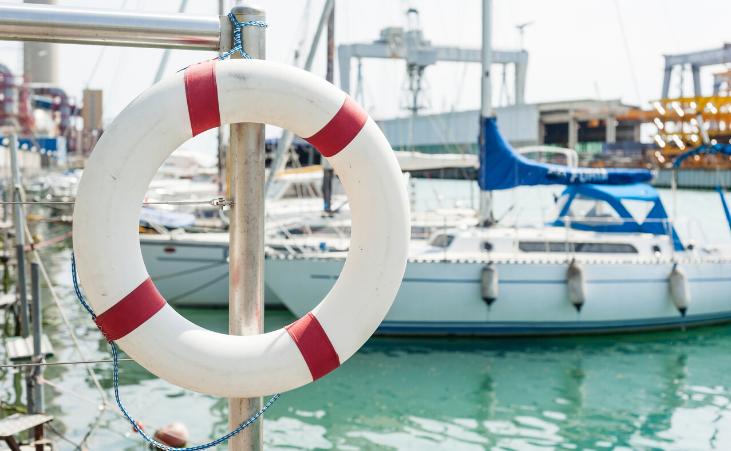National Safe Boating Week kicks off the third week of May, just before many of us get out on the open water. The occasion is meant to draw attention to the importance of boating safely and to take a fresh look at boating safety tips.
This year, there are additional safety measures being put in place to keep the boating community safe during the COVID-19 pandemic. Be sure to check with the appropriate officials in your state regarding acceptable boating activities before planning any outings. In Massachusetts, Governor Baker has allowed boat ramps to remain open, but with significant guidelines to discourage group activity and to keep safe social distances.
Boating Safety Tips
-
Take a Boating Safety Class
Convenient and inexpensive, a boating safety class will help rookies and veterans alike to become familiar with all procedures and equipment required for safe boating. These classes teach us about the safety rules and the possible consequences of non-compliance. A free online boat safety course is available through Boat U.S visit the website to learn more.
- Know the Local Rules and Markings
Before venturing out from any marina or other launch site, know the local restrictions, rules, and warnings. Stay alert for buoys and other navigational aids to ensure your safety, prevent collisions, and to avoid any restricted areas.
- Request an Official Safety Check
The U.S. Coast Guard Auxiliary and the U.S. Power Squadrons offer free inspections to determine that your boat is equipped with the required safety equipment, making sure all is in good working condition. The U.S. Power Squadron is an educational organization committed to maritime safety since its founding in 1914.
You can find more safety information and tips on their website at https://www.usps.org/.
- Pre-Launch Safety Checklist
The most experienced airplane pilots review a pre-flight safety checklist. As a boater, you, too, can ensure that you have not forgotten something that may be vital to your safety. A pre-departure safety checklist created by the National Marine Manufacturers Association (NMMA) covers pre-checks for all areas including:
- Personal flotation devices
- Sound producing devices
- Lights and Shapes (masthead signals)
- Distress signals
- Tools and critical spare parts
- Fuel and oil
- Fire extinguishers
- Ventilation from fuel fumes
- Bilges
- Weather forecast
- Battery strength and care
- Docking and anchoring tips
- Rules and Documentation
This handy list is an excellent companion during every phase of your voyage.
- Consult the Weather Reports Before Heading Out
Many boating emergencies resulted from severe weather that arose during an outing. Always consult weather and water reports before heading out and delay your mission until all is clear. Boating is not fun in heavy seas and violent winds, so spare yourself and your passengers from a very uncomfortable outing.
- Have a Designated Driver
Alcohol consumption is the leading cause of boating accidents. Before heading out, designate an experienced skipper who will not imbibe during the voyage and will ensure your outing is a safe one.
Even when no alcohol will be aboard, having an experienced backup to navigate is a great idea should you become incapacitated.
- Announce Your Float Plan
Relay your float plan and expected duration to a responsible family member or marina employee before setting out. The plan should include your name and address, intended itinerary and duration, boat type, registration information, and the types of communications equipment aboard.
Visit Cape Yachts
The professionals at Cape Yachts in South Dartmouth MA and Newport RI are longtime proponents of every aspect of boating safety. As sellers and brokers of new and previously owned yachts, the company maintains, supports, and encourages the highest standards of watercraft safety.
To learn more about Cape Yachts and search the Cape Yacht's extensive inventory of top-quality watercraft, visit their website.

